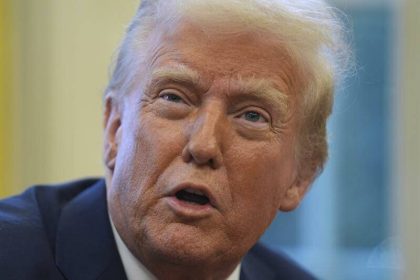The presidents of the United States of America have a great influence on the technology trend around the world; Therefore, we should be ready for Donald Trump to change the process of growth and development of technology around the world with his presence in the White House.
Where is the artificial intelligence industry going?
During Trump’s campaign, he pledged to repeal Joe Biden’s 2023 executive order on artificial intelligence; Regarding this decree, he said: “It hinders the innovation of artificial intelligence and imposes the ideas of the radical left on the development of this technology.”
Experts expect him to make good on that promise, potentially overturning efforts on many regulatory fronts, such as dealing with artificial intelligence-generated misinformation and protecting people from algorithmic discrimination.
However, the complete cancellation of Joe Biden’s order is not possible; Trump will not cancel the establishment of the AI Safety Institute by the Secretary of Commerce; While Trump could order his new commerce secretary to shut down the agency, some experts believe it has enough bipartisan support to survive.
As for new initiatives, Trump is expected to promote the use of artificial intelligence in national security. It is also likely to expand export restrictions on AI technology in the name of outpacing China. Currently, US semiconductor companies cannot sell their most advanced chips to Chinese companies.
The jump in the price of electronic consumer goods in America
Trump plans to impose heavy tariffs on imported goods, including a 60 percent tariff on Chinese goods, a 25 percent tariff on Canadian and Mexican goods, and a 10 or 20 percent tariff on all imported goods; He has pledged to do so on the first day of his administration, and after the implementation of these tariffs, the price of many consumer electronics will increase.
According to a report published in late October by the Consumer Technology Association of America, these tariffs could increase the consumer price of laptops and tablets by 45 percent, video game consoles by 40 percent, monitors by 31 percent, and smartphones by 26 percent.
In total, U.S. consumer spending power for tech products could drop by $90 billion by next year.
The Trump administration may also take a less aggressive stance toward tech giants; Under Biden, the Federal Trade Commission has sued Amazon and Meta for maintaining monopoly power and violating antitrust laws, and has made efforts to block mergers and acquisitions by big tech companies.
Trump is expected to replace Lina Khan, the current head of the Federal Trade Commission, although it remains unclear how much the new administration, which bills itself as anti-regulatory, will affect the oversight the tech giants face. Executives from major companies including Alphabet, Amazon, Apple, Intel, Meta, Microsoft, OpenAI, and Qualcomm congratulated Trump on social media.
Where are cryptocurrencies going?
On November 6, the day Donald Trump’s victory in the presidential election was announced, the price of Bitcoin jumped 9.5% to over $75,000; A sign that the cryptocurrency world expects to thrive under the next regime.
At the Bitcoin conference in July, Donald Trump promised to make America the “crypto capital of the planet.” If Trump follows through on his promises, he could create a national bitcoin reserve by keeping bitcoin seized by the US government.
Trump also promised to fire Securities and Exchange Commission Chairman Gary Gensler, who has pushed for more regulation of cryptocurrencies as securities with more government oversight.
Although it may not be within Trump’s power to fire Gensler; Gensler will likely resign when the new administration begins. However, the appointment of the new chairman of the US Securities and Exchange Commission is up to Trump, and the next chairman’s approach to digital currencies is likely to be much more lenient.
RCO NEWS
















